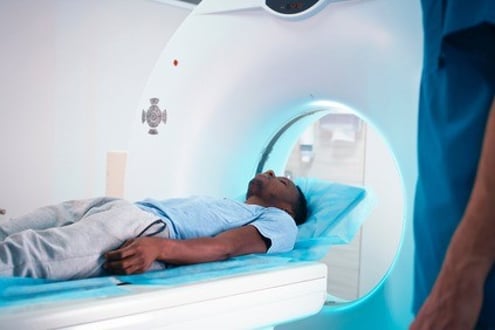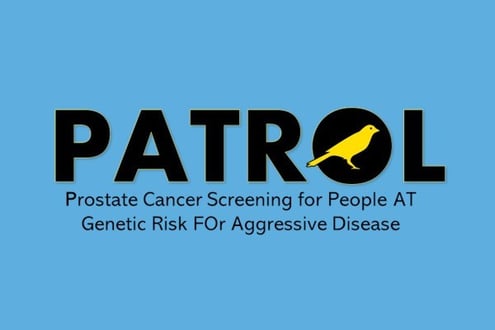HOXB13: Cancer Risk
Cancer Risk Associated with Inherited Mutations
If you have tested positive for an inherited mutation, we recommend consulting with a genetics expert who can look at your personal and family history of cancer and can help you decide on a risk-management plan.
cancer risks
mutations increase the risk for cancer. This risk may be associated with a younger age of diagnosis. More research is needed to better measure the lifetime cancer risk associated with a mutation in this gene.
Other cancer risks for people with a mutation
There is not yet enough research to conclude that a mutation increases the risk of other cancers. Research on the risk for cancer in people with mutations is ongoing.
Participate in Research
The cancer screening and prevention studies below are enrolling people with mutations. To search for more studies, visit our Search and Enroll Tool.
Using a Shorter Type of MRI as a Screening Tool for People at High Risk for Prostate Cancer
Clinicaltrials.gov identifier: NCT05384535
This study is looking at whether using a shorter type of MRI known as bpMRI (biparametric MRI) in combination with PSA tests in men who are at high risk of developing prostate cancer will improve...
PATROL Study: Prostate Cancer Screening for People AT Genetic Risk FOr Aggressive Disease
Clinicaltrials.gov identifier: NCT04472338
The PATROL (Prostate Cancer Screening for People AT Genetic Risk FOr Aggressive Disease) study is for people at risk for prostate cancer because they carry one or more genes that are known or suspected to...
Screening Study for Men at High Genetic Risk for Prostate Cancer
Clinicaltrials.gov identifier: NCT03805919
The National Institutes of Health has a clinical trial for men at high genetic risk for prostate cancer. This is trial is for men without prostate cancer, ages 30 to 75, who have tested positive...
Screening in Men at High Risk of Developing Prostate Cancer
Clinicaltrials.gov identifier: NCT05608694
This study will determine if prostate magnetic resonance imaging (MRI) will find prostate cancer in men at high risk of developing prostate cancer.
Upright MRI for Prostate Cancer Screening
Clinicaltrials.gov identifier: NCT03474913
This study will compare the effectiveness of an upright magnetic resonance imaging (MRI) compared to prostate specific antigen (PSA) and current MRI imaging for prostate cancer screening.




